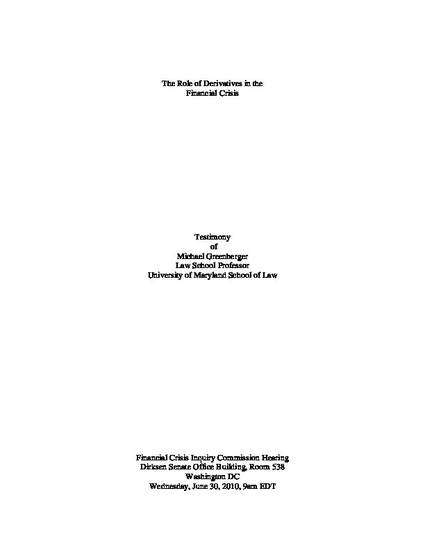
- testimony,
- Financial Crisis Inquiry Commission,
- Financial Crisis of 2008-2010,
- securities law,
- banking,
- finance,
- economics,
- SWAPs,
- derivatives
It is now almost universally accepted that the unregulated multi-trillion dollar OTC CDS market helped foment a mortgage crisis, then a credit crisis, and finally a ―once-in-a-century systemic financial crisis that, but for huge U.S. taxpayer interventions, would have in the fall of 2008 led the world economy into a devastating Depression. Before explaining below the manner in which credit default swaps fomented this crisis, it worth citing in the margin those many economists, regulators, market observers, and financial columnists who have described the central role unregulated CDS played in the crisis.
Even those once skeptical of arguments about the dangers of OTC derivatives have joined this chorus. In warning Congress about badly-needed financial regulatory reform efforts when it considered the TARP legislation in Senate hearings before the Senate Banking Committee in September, 2008, then-SEC Chairman Christopher Cox called the CDS market a ―”regulatory blackhole” in need of ―immediate legislative action. Former SEC Chairman Arthur Levitt and even former Fed Chair Alan Greenspan—both of whom supported the CFMA in 2000—have acknowledged that the deregulation of the CDS market contributed to the fall 2008 economic downfall. [page 11-12]
Available at: http://works.bepress.com/michael_greenberger/33/
